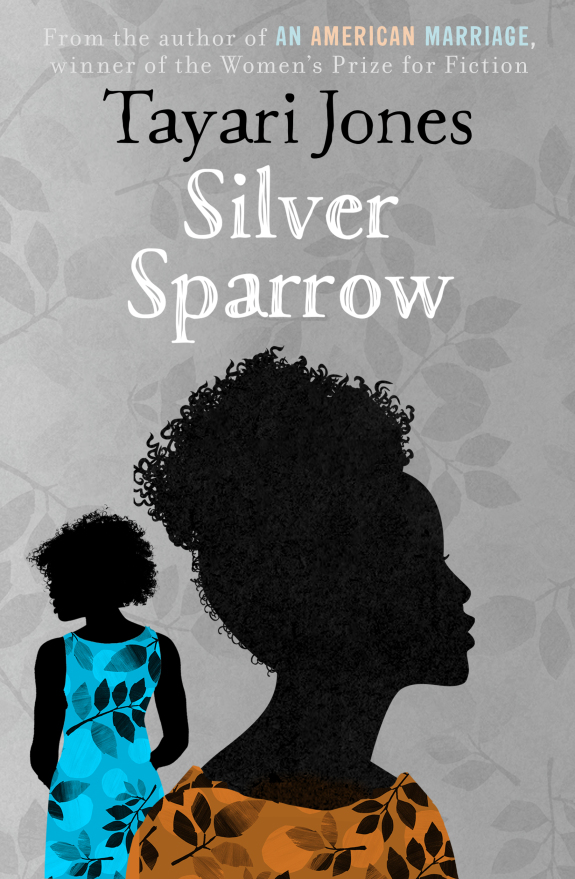Book: Silver Sparrow by Tayari Jones
Author: Tayari Jones,
Publisher: Oneworld
Price: Rs 399
It isn’t often that a writer is lucky enough to have her novel republished. This is exactly what has happened to Tayari Jones. Silver Sparrow was first published in 2011. Following the success of An American Marriage, Jones’s fourth novel, Silver Sparrow has been published for the first time in the United Kingdom. The theme is unusual as Jones locates the tale within the historical and misogynist fault lines of bigamy, a criminal offence, but which is still widespread. Jones narrates an extraordinary tale, complete with its metaphorical title and melodramatic plot of secrecy and discovery of an ordinary man who knowingly marries twice. The tellers of the tale are the man’s two daughters, one secret, the other legal.
Set in Atlanta, Jones’s home city, this Afro-American novel is about ‘halves’ and ‘doubles’, not wholes — half-sisters, double perspectives, two women, one man, claims and half-claims. The narrative ordering has a deliberate fallout on the telos of the tale, as it is Dana, the secret daughter of James Witherspoon, who tells her story first. Dana knows from the beginning that her father is a bigamist and she is made aware by him at the age of five that she, and not her half-sister, Chaurisse, is “a secret”. The devastating consequences of Dana’s secret life are such that even while she confesses that she and her mother spy on James’s wife and daughter, they regard it as “surveil”, an activity which, according to her, does no damage to others but to themselves. In the half-anonymous city of Atlanta, a “country town” according to Dana’s mother, Dana has to learn to live her secret life with the full knowledge that she cannot have any material claims that her half-sister enjoys as James’s daughter.
Part II deals with the crippling outcome of the revelation of James’s bigamy on his legitimate family. For Chaurisse, it is the realization that she is her father’s other daughter and as she struggles to grow up with the truth, she believes that the six people — including James’s half-brother who has a complicated relationship with James’s half-family — are “hog-tied” and “fastened in place by different knots”. Unknotting can take various routes, but for Chaurisse’s mother, Laverne, the costs are heavy. So even while she is aware of the business of the boiling grits, the revenge plot that Al Green’s girlfriend enacts on him in his bathtub, Laverne decides to reclaim her wifehood in a hugely metaphorical chapter, “Epithalamium”.

Silver Sparrow by Tayari Jones, Oneworld, Rs 399 Amazon
Both a coming-of-age novel and a familial drama issuing from a social taboo, Silver Sparrow seeks to avoid the obvious binaries — wife/ whore, legitimate/illegitimate — by humanizing its characters. Jones’s exploration of Atlanta’s black middle-class life is well-nuanced, as she attends to the sexual mores of the 1950s and of the 1980s, the period where the bulk of the novel is situated. And while Dana’s mother has to work for her living, the gendered consequences of work and self-worth are well woven in Chaurisse’s parents’ lives as we get a sense of Laverne’s low self-esteem despite having a thriving salon business and James’s sense of self, which is directly related to his success as a self-employed entrepreneur.
When asked about how she crafted the ‘point of view accounts’ in Brooklyn Public Library in May 2017, Jones offered two explanations. Narratively speaking, Chaurisse knows nothing until Dana “rolls up on her” half way into the story. Two, since Dana is the cultural outsider, the metaphorical ‘silver sparrow’, Jones normalizes the account by letting her tell her story first. By using this sequential order, Jones downplays the sensationalism surrounding bigamy and secret children and, simultaneously, heightens the crises in the lives of Chaurisse and Laverne. The half-reconciliation between the half-sisters at the very end suggests that there are no easy answers even in the new millennium.
However, notwithstanding its many positives, Silver Sparrow fails to rupture the powered relations that are written into bigamy as it adheres to dominant gender stereotypes. While the women fight out their claims, James suffers the least and there’s no explanation for it. It cannot be forgotten that it is he who shrouds Dana and her mother in a veil of secrecy and shows no regret or qualms about abandoning them once the truth is out. Of course, the end suggests that Dana has probably won the struggle of naming and shaming as she is able to live a different life with her child in the new millennium. Unfortunately, her mother, Gwendolyn, has little to gain or offer and she literally disappears after her encounter with Chaurisse in her home. While it is true that this is still a man’s world, the question is, must women lose? Silver Sparrow evades the question.










